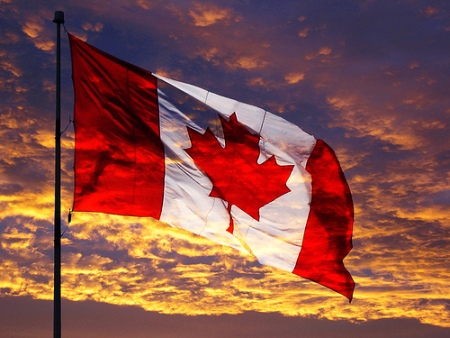By Fernand Le Fèvre
American: a person born, raised, or living in North America or South America. (Second definition, Merriam-Webster)
Transatlantic: involving people or countries on both sides of the Atlantic Ocean (Third definition, Merriam-Webster)
This is a piece for the Canadians on campus.
As I’ve reflected in the past weeks on my time at Sciences Po, a single grievance marks an otherwise exceptional and enriching experience. It is a grievance I feel compelled to voice in an effort to help remedy the situation. Some of my fellow Canadians may – as I do – notice a general lack of Canadian representation at our school; there are few classes pertaining to Canadian history or politics – and in most other classes, Canada is either ignored or mentioned only briefly. There has been but a single DLS lecture pertaining to Canada in my two years here. Our “school spirit” tends to revolve around the US. Visitors would be forgiven for unawareness of any Canadian presence at all.
It’s our job, as Canadians, to create that presence. Consider this a call to Canadians on campus; we have the opportunity, as our program here in Reims evolves, to carve out a place for Canadian identity. It is entirely up to us.
Most non-Canadians, I’d posit, aren’t here for Canadian studies or access to Canadian universities. Yet we are the Euro-American campus. Our campus website boasts “transatlantic relations” as an “area studies focus.” Our students are consistently encouraged to spend their third year in Canada – we even have a DualBA program with the University of British Columbia. A significant number of students on campus hail from Canada – our mascot is a beaver (an animal typically associated with Canada). You’d think that – with all this accounted for – Canada would be a much bigger part of our time here. But it isn’t. Though we indeed focus on transatlantic relations, we do so largely without accounting for a major actor in the transatlantic relationship.
Let me elaborate. In two years at Sciences Po, Campus de Reims, I have had three different mandatory classes on American or transatlantic history, running through both World Wars – but not once have I been required to remember that April 9-12, 1917, four divisions of the Canadian Corps grouped together and took the tactically significant Vimy Ridge, suffering more than 10,000 casualties. The battle was a defining moment in (Canadian) nation-building, when Canadian soldiers overcame tensions stemming from difference in language and descent in a concerted effort against injustice. Vimy was the beginning of Canada’s recognition as a nation, which led to “patriation” and, ultimately, sovereignty in 1982. Yet for all our class discussions on nation building, not once has the Canadian example been discussed (not that I haven’t tried).
I have studied the UN Security Council and NATO, but never heard mention of Canadian Prime Minister Lester B. Pearson, whose leadership in the creation of the UN Emergency Force (and, de facto, the structure of the UNSC) and in the establishment of NATO won him a Nobel Peace Prize.
I have attended spirit assemblies, clad in purple, where not a single Canadian flag flew.
I know this is more than irksome for a number of Canadians on campus because I’ve discussed it with some of you. But here’s the thing: it’s our own fault. We grumble to each other – and occasionally to friends – but our own complacency with the current state of affairs is a polite acquiescence. As long as no demand exists, there will be no classes on Canada. If we bring no Canadian flags, none will fly. If we do not insist on Canada’s role in the transatlantic world – past and present – we can expect nothing more than what we have now.
Canadians: I urge you to quit complacency with me. As campus continues to evolve and as the student body continues to help shape the nature of our program, we have the capacity to ensure – to insist on – a greater Canadian representation.
Other posts that may interest you:
- The Trouble with ‘Ecocide’
- Carbon dioxide removal – hit or miss?
- Local Victories for Turkish Opposition — A Sign of Hope?
- Are France and Japan a Mismatch Made in Heaven?
- A Reflection on Dark Tourism
Discover more from The Sundial Press
Subscribe to get the latest posts sent to your email.





